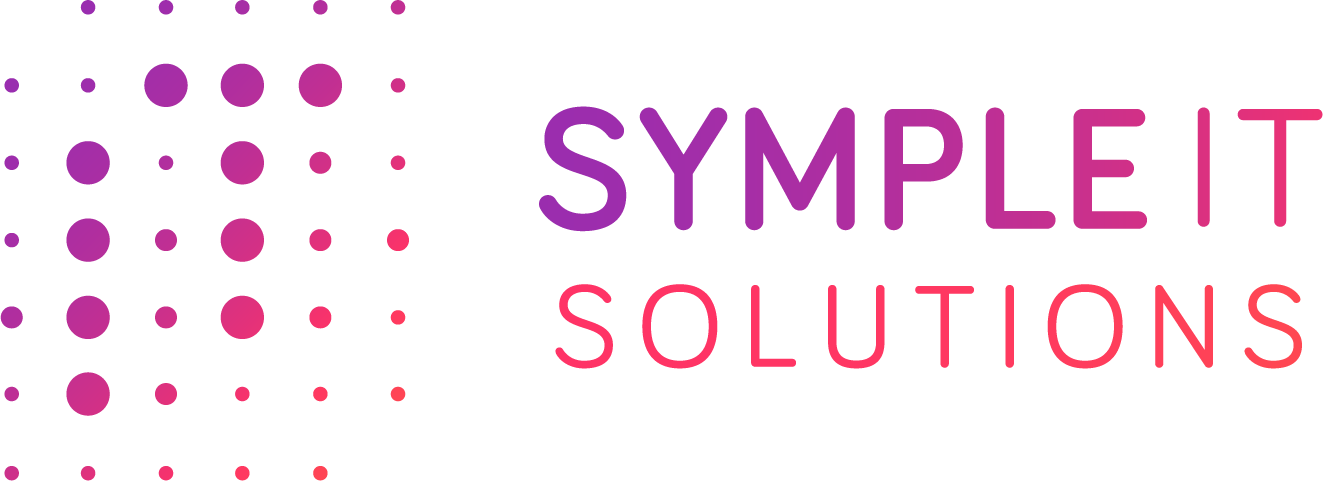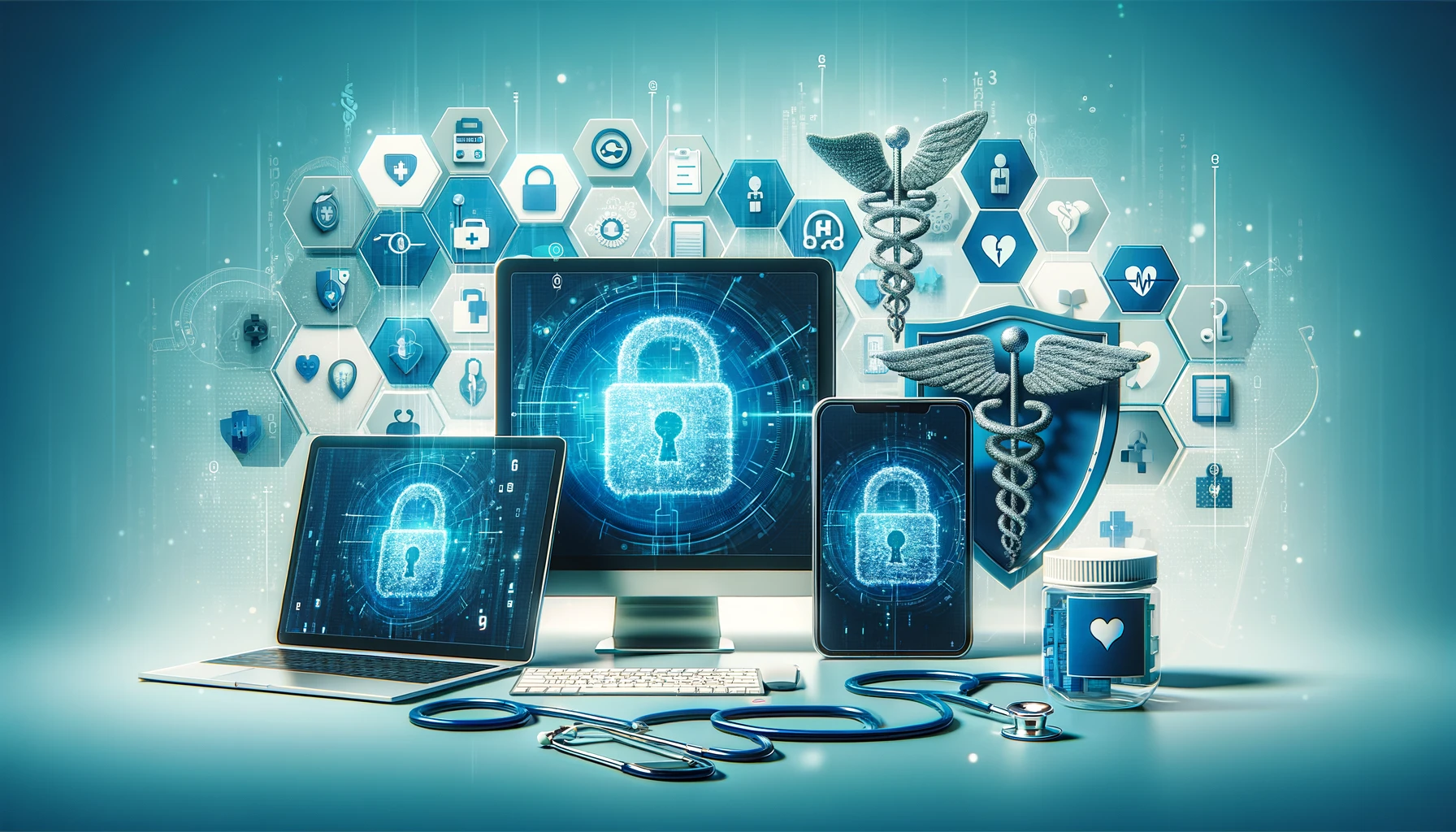Last Updated on February 14, 2024 by Symple IT Solutions
Introduction
Are you aware of how critical data privacy and security are in the healthcare sector?
In an era where digital health records are the backbone of patient care, ensuring the confidentiality, integrity, and availability of sensitive health information has never been more paramount.
But, how do healthcare organizations navigate the complexities of HIPAA compliance while safeguarding against ever-evolving cyber threats?
This is where managed IT services come into play, offering a beacon of hope for healthcare providers.
Why are managed IT services considered a linchpin in the realm of healthcare cybersecurity and HIPAA compliance?
The Ottawa healthcare sector, with its burgeoning need for digitalization, faces two paramount challenges: ensuring HIPAA compliance and safeguarding against cyber threats. Managed IT services in Ottawa emerge as the beacon of solution, offering not just support, but a strategic framework to navigate these complex waters.
Let’s delve deeper into the significance of these services in fortifying the defenses of healthcare institutions against cyber vulnerabilities and compliance breaches.
HIPAA’s Importance and Compliance:
The Health Insurance Portability and Accountability Act (HIPAA), enacted in 1996, was a significant turning point for the US healthcare industry, addressing gaps in health insurance coverage and establishing robust standards for protecting patient data.
HIPAA’s relevance has only grown with the digitalization of healthcare records, making compliance not just a legal obligation but a cornerstone of patient trust and data security.
Compliance with HIPAA ensures healthcare organizations implement stringent safeguards to protect sensitive patient information, with serious repercussions for non-compliance ranging from hefty fines to criminal charges. The significance of HIPAA extends beyond legal compliance, fostering a culture of privacy and security that is crucial in the healthcare sector
These standards ensure that healthcare organizations implement robust safeguards, including physical, network, and process security measures to protect patient data from unauthorized access, use, or disclosure.
Cybersecurity Threats in Healthcare:
The transition to electronic health records (EHRs) and digital transactions has exposed healthcare data to increased risks of breaches and cyberattacks. This vulnerability underscores the necessity for healthcare organizations to adopt comprehensive cybersecurity measures to protect electronically stored protected health information (ePHI).
The healthcare sector faces a broad spectrum of cyber threats, including ransomware, phishing attacks, and insider threats, which necessitate a multifaceted security approach to protect patient data effectively?
The Vital Role of Managed IT Services in Healthcare
Managed IT services play a critical role in helping healthcare organizations navigate the complexities of HIPAA compliance and cybersecurity.
By offering expertise in data protection, risk assessments, and compliance strategies, managed IT service providers enable healthcare facilities to focus on patient care while ensuring data privacy and security.
These services include but are not limited to, implementing robust data loss prevention (DLP) measures, conducting regular security risk assessments, and providing ongoing training and support for healthcare staff to maintain a high level of security awareness?
Ensuring HIPAA Compliance
Healthcare organizations are bound by the Health Insurance Portability and Accountability Act (HIPAA), which mandates stringent measures to protect patient health information. But achieving and maintaining HIPAA compliance can be a daunting task, fraught with complexities and constant updates.
- Tailored Compliance Strategies: Managed IT services specialize in customizing compliance strategies that align with the specific needs of healthcare providers. They ensure that electronic Protected Health Information (ePHI) is securely stored, transmitted, and accessed in compliance with HIPAA regulations.
- Risk Assessments and Management: Regular risk assessments are crucial for identifying vulnerabilities within healthcare IT systems. Managed IT providers conduct comprehensive evaluations, offering insights and solutions to mitigate potential risks to patient data.
Bolstering Cybersecurity Defenses
Cybersecurity Threats Facing Healthcare Organizations
Managed IT services offer a holistic approach to cybersecurity, encompassing risk assessments, regular monitoring, and the implementation of advanced security protocols. These services ensure not only the protection of patient data but also the continuity of healthcare services, which can be severely disrupted by cyber attacks.
The healthcare industry is a prime target for cybercriminals due to the sensitive nature of patient data. Managed IT services play a crucial role in reinforcing cybersecurity measures to protect against breaches and cyberattacks.
- Advanced Threat Detection: Utilizing cutting-edge technologies, managed IT services offer real-time monitoring and threat detection capabilities. They swiftly identify and neutralize potential threats before they can exploit vulnerabilities.
- Data Encryption and Backup Solutions: Encrypting patient data ensures its security during transmission and storage. Furthermore, managed IT services implement robust data backup and recovery plans, safeguarding against data loss due to cyberattacks or other disasters.
The Intersection of Managed IT Services and Patient Care
Managed IT services not only protect against cyber threats and ensure compliance but also enhance the overall quality of patient care.
- Improved Data Accessibility: Secure and efficient access to patient data enables healthcare professionals to make informed decisions, improving patient outcomes.
- System Uptime and Reliability: By ensuring the reliability and availability of IT systems, managed IT services minimize downtime, ensuring that healthcare providers can deliver uninterrupted care.
Conclusion
For healthcare organizations in Ottawa, the path to HIPAA compliance and robust cybersecurity is complex and fraught with challenges. Managed IT services offer a strategic partnership, providing the expertise, tools, and support necessary to navigate this landscape. By ensuring compliance and safeguarding against cyber threats, healthcare providers can focus on what they do best: delivering exceptional patient care.
As Ottawa IT Support, our commitment to the healthcare sector is unwavering. We understand the unique challenges faced by healthcare providers and offer tailored IT solutions in Ottawa that ensure compliance, enhance cybersecurity, and ultimately, protect patient data. Together, we can create a secure, compliant, and efficient healthcare environment for all.
FAQs
Q: What is HIPAA compliance, and why is it important? A: HIPAA compliance involves adhering to regulations designed to protect patient health information. It’s crucial for ensuring the privacy and security of sensitive data and maintaining trust between patients and healthcare providers.
Q: How do managed IT services enhance cybersecurity in healthcare? A: Managed IT services implement advanced security measures, including threat detection, data encryption, and secure data backup solutions, to protect against cyber threats and ensure the integrity of patient data.
Q: Can managed IT services help in improving patient care? A: Yes, by ensuring secure and efficient access to patient data and minimizing system downtime, managed IT services enable healthcare professionals to provide timely and effective care.
Q: Are managed IT services cost-effective for healthcare organizations? A: Managed IT services can be cost-effective by reducing the need for in-house IT staff, minimizing downtime, and preventing costly data breaches, ultimately offering a significant return on investment.


